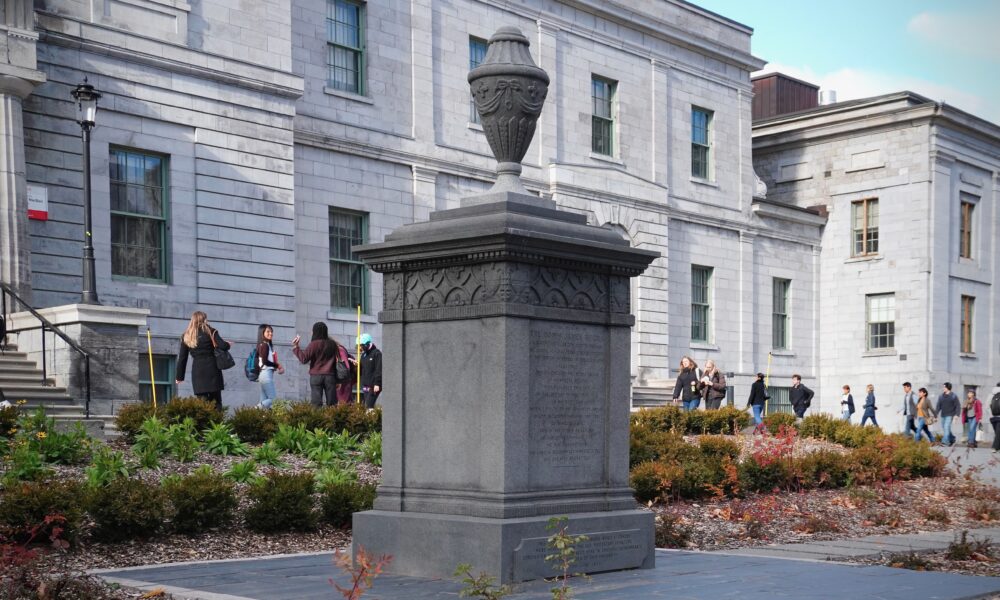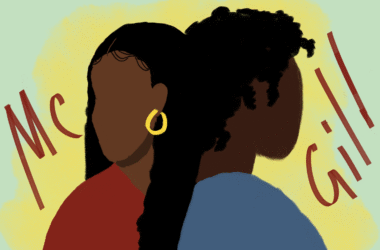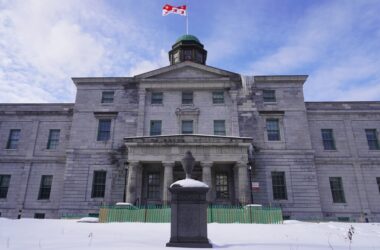McGill’s Department of History and Classical Studies hosted a panel discussion on Nov. 6 to commemorate the release of McGill in History, a critical historical study of the university. The book was edited by Brian Lewis, Don Nerbas and Melissa N. Shaw, each of whom spoke on the panel. Several of the book’s contributors also spoke, including Andrea Tone, Tess Elsworthy, and Marlene G. Shore.
McGill in History explores issues embedded in the university’s past, such as slavery and colonialism, inviting readers to reflect on how these systems of power impact higher education from the distant past to the present. The panellists explained their unique contributions to the text and how the core topics discussed by the book reflect a reckoning with the unethical power structures that shaped McGill.
The event began with words from Lewis, a professor in McGill’s Department of History. He explained the book’s goals and emphasized the need to unflinchingly confront McGill’s oppressive history head-on.
“We thought that there was a need […] for a rigorous scholarly investigation of McGill’s history by experts in the field, one that would range broadly, thematically and chronologically, that would place McGill in historical context, that would be fully alive to slavery and Indigenous issues, and that would serve as a fitting and lasting contribution from McGill’s Department of History and Classical Studies,” Lewis said.
Nerbas, McGill associate professor and Chair in Canadian-Scottish Studies, then explained the reasoning behind the book’s chronological structure and historiographical approach.
“In a lot of ways, McGill’s history is very much a big history that appears already in a lot of aspects of Canadian history,” Nerbas stated. “There was an attempt to integrate [its] institutional history into the broader history of Canada, Quebec, Montreal, and, in fact, the British Empire [….] So, the book is chronologically organized. It’s not a comprehensive history of the institution, but rather, it is based upon snapshots of particular topics that, in many ways, are decided based upon existing expertise.”
The next panellist to speak was Shaw, assistant professor in McGill’s Department of History and Classical Studies. She elaborated on the book’s approach to interactions between different histories, and reflections readers can glean from the work.
“[History] fosters dialogue and showcases the creative work that can emerge when historians examine and discuss the different levels at which history is analyzed and communicated,” Shaw said. “By tracing interactions between specific micro-histories and broader macro-histories, it prompts readers to consider how local experiences, shaped by those connected to McGill and influenced by its historical roots, politics, and procedures, relate to larger historical processes.”
The statements from the three editors were followed by comments from some of the book’s contributors. Tone, another professor of History, explained that her contribution focused on the McGill Department of Psychiatry’s involvement with the CIA and its MK-ULTRA program. Elsworthy, a graduate student at McGill’s School of Information Studies, wrote her section on the university banning Japanese students from attending during World War II. Finally, Shore, professor emerita at York University’s Department of History, explained her contribution’s focus on McGill and Canada’s enduring lack of support for the humanities and social sciences.
The event concluded with a brief Q&A segment in which Nerbas explained how he would like to see the text accessed in the future.
“I think that the book hopefully could be used in the classroom,” Nerbas said. “I think in terms of actually introducing students to history, the university itself provides a really exciting subject, one that is nearby and one that actually is connected to a really fascinating and, as I mentioned, big history.”
A previous version of this article stated that Tess Elsworthy was a graduate student in McGill’s Department of History and Classical Studies, when in fact, she is a graduate student at McGill’s School of Information Studies. Furthermore, a previous version of this article did not specify that Marlene G. Shore is a professor emerita at York University. Moreover, a previous version of this article attributed the concluding quote to Brian Lewis, when in fact, it was Don Nerbas who spoke these words. The Tribune regrets these errors.









